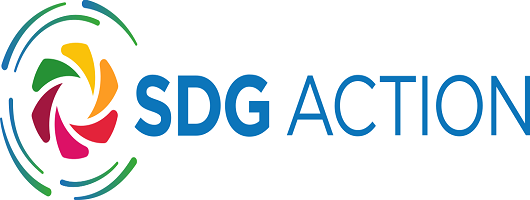Article highlights the need for a systemic approach in Health
12/07/2021
Javier Abi-Saab (Fiocruz News Agency)
Published in the United Nations (UN) SDG Action platform, the article Non-communicable diseases: a challenge for global cooperation, authored by the president of Fiocruz, Nísia Trindade Lima, and researcher Carlos Gadelha, highlights the importance of integrated public policies that consider human health in its quality-of-life dimension, avoiding focusing on just a few diseases. "More than looking at a single disease, we need to look at health conditions and health systems. The worst thing that can happen for sustainability and development is fragmented actions. The system must be prepared to respond to epidemics and pandemics, as well as increase the capacity to attend to chronic diseases", comments Nísia Trindade.
According to Carlos Gadelha, the article highlights three major messages. The first emphasizes that the process the world is going through should be understood as a syndemic, a term that highlights the convergence between diseases and their social determinants. For the researcher, there is no dichotomy between communicable and non-communicable diseases, in which one group should be prioritized over the other, not least because COVID-19 has shown that pandemic risk factors are invariably related to chronic diseases. "Health needs a systemic approach, and when we talk about a syndemic, we are talking about health problems that are complex and there is a joint determination of them”, he says.
The second message highlighted by the article is that if the health situation is systemic, public policies must also be systemic. For the authors, health constitutes a unique opportunity that alerts the world and Brazil to policy integration. "When looking at the current context of health we realize that it clearly has an economic dimension, being one of the employment generation main areas; it is inherent to social welfare; it is the science and technology generation leading area, and it is crucial to the relationship with the environment", said Gadelha. The article emphasizes that health is not an externality of economic development; health is development because it integrates these four dimensions.
Invitation
Finally, the article warns that, in the global context, inequality of knowledge and of scientific and technological capacity for innovation is being reinforced. The text points out, for example, that 60% of patents in biotechnology for chronic diseases are concentrated in 15 global companies. "It is clear that there is an unsustainable concentration of productive capacity in biotechnology for chronic diseases. The prospect is that if this global inequality in knowledge and technology is maintained, the 2030 Agenda will fail, as is happening with COVID-19 vaccination, where most countries are being excluded from access to vaccines", notes Gadelha.
The invitation to participate in the SDG Action initiative is considered by Nísia Trindade as the Fiocruz strategic importance recognition within Latin America and in a global discussion that calls attention to the need for greater equity of knowledge, technological capacity, and production. The Fiocruz president considers that this vision of equity articulates the national dimension with the global one in the search for establishing a pattern of solidary and non-competitive cooperation.
A SDG Action
SDG Action is a new initiative launched by the UN Sustainable Development Solutions Network (SDSN) that offers resources for sustainability practitioners in all sectors and provides timely analysis of the most pressing challenges. Its emphasis is on identifying opportunities and providing concrete ways to accelerate progress. The site features articles by world-leading experts on all aspects of the SDGs and climate action. Learn more here.


